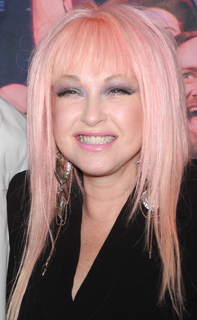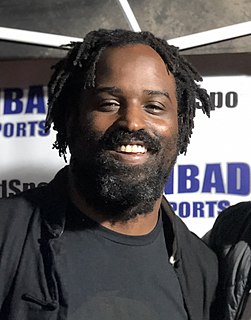A Quote by John Cameron Mitchell
Acceptance and assimilation, you know, breeds mediocrity and perhaps an even more sheep-like conformism in terms of what kind of music you're supposed to listen to if you're gay... What are you supposed to look like? What's your body supposed to look like?
Related Quotes
Learning that aesthetic as a kid - seeing those photos - made me think that that's what photos are supposed to look like. I never understood snapshots. I was looking at them like, "This is horrible; that's not what a picture is supposed to look like." I was taught by these photos. So when I picked up the camera, though I had never done it before, I kind of already knew what I was doing.
It is not a dirty word, "feminism." I just think that women belong in the human population with the same rights as everybody else... The problem is, "A feminist looks like this, or is like that." We are taught not to like ourselves as women, we are taught what we're supposed to look like, what our measurements are supposed to be. I never hear what measurements men are supposed to be. Just women.
I think, when you're a young composer, you're told constantly that what you're supposed to do is figure out what your voice is. "What is your thing supposed to sound like?" You know: "What's the thing you do," that everyone can recognizably tell from a long distance is you and then you're supposed to be in search of that marker and you're supposed to find it and you're supposed to live there for the rest of your life. And it seemed to me, from a young age, that was what I was encouraged to do. You find a sound and that's your sound! That's what you do.
At 21, you can live life with reckless abandon, as reckless as your abandon is. Then, at 30, there's something there are the supposed to be's. You're like, "I'm supposed to be doing this. I'm supposed to be doing that." You start measuring your life by what you think you're supposed to be doing. Having recently turned 40, it's like, "What the hell?! Why am I worried about what I'm supposed to be doing? What do I want to do?" You become fine with wherever the road takes you.
I grew up in the church, and I always kind of knew Bible stories and knew the Sunday school answers, but when I was a freshman in high school I joined youth group, and that's when I started to see radical love; that's when I started to see what Christian community is supposed to look like and what fellowship is supposed to look like.
There are moments in my life when I feel like I’m exactly where I’m supposed to be, doing exactly what I’m supposed to do. I pay attention to them. They’re my cosmic landmarks, letting me know I’m on the right path. Now that I’m older and can look back and see where I missed a turn here and there, and know the price I paid for those oversights, I try to look sharper at the present.
I can look back at it now as definitely like an initiation into adulthood. Almost overnight in the NFL, I was put on a pedestal and I was supposed to be this icon or this image of what a professional athlete was supposed to be. I felt like I just got stuck trying to be someone else and I forgot who I actually was.
I feel like we're so limited by the context at which we look at life. The way we look at who we're supposed to be and how we're supposed to love... everything. I feel like that, in and of itself, is a project of a lifetime: the problem of how to break out of the limiting context that is imposed upon us by the educational system, by the church, by our parents... As a kid I rejected it without even thinking about it. Now that I'm a little older, I see how deeply destructive it really is.




































